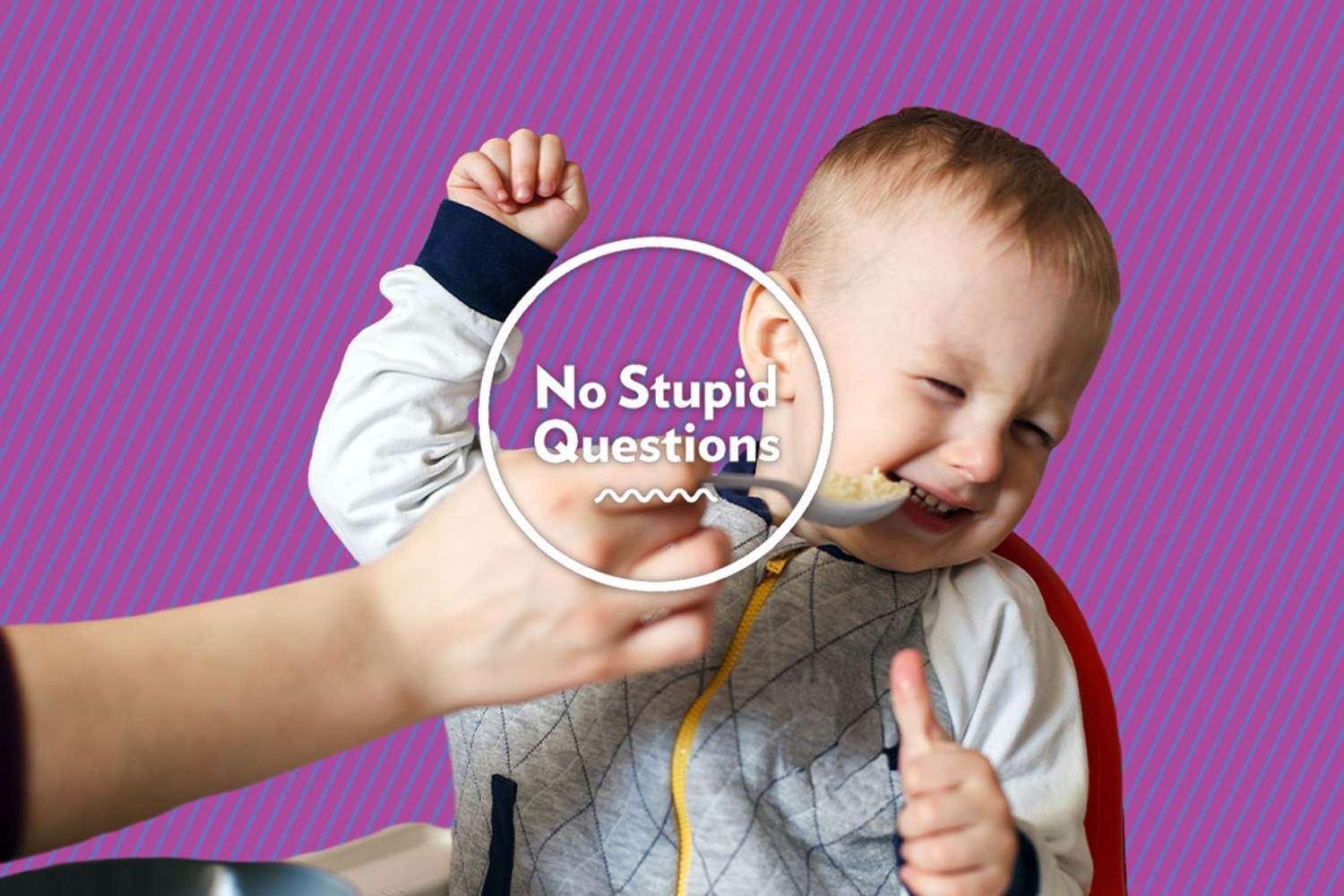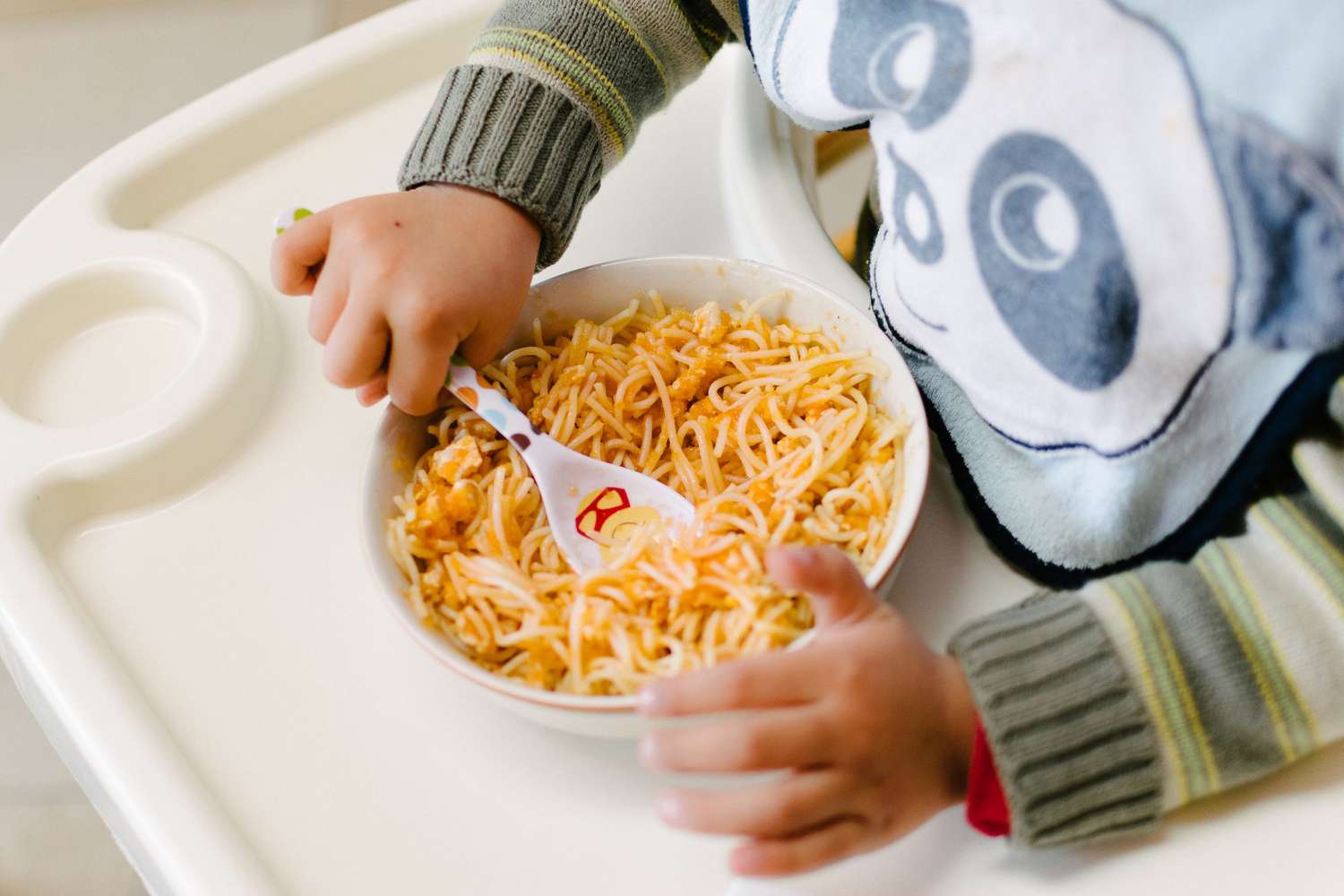Murakhver and Feltman also stress the importance of not pressuring your child to eat when they are not hungry, as they may get hungry later in the day.
"That can ultimately lead to them losing touch with their hunger and satiety cues," they advise. "You may try offering a small serving of fruit, yogurt, nuts, or cereal in appealing small and colorful dishes, alongside water or milk." One tip Dulan has if your child rejects solid foods, or prefers a glass of milk or juice, is making them a smoothie. "A great breakfast smoothie recipe is half of a banana, a handful of ice, ½ cup of skim milk or non-dairy milk, 1 spoonful of nut butter, ⅓ cup of granola and dash of cinnamon."
What if my child is more interested in snacking than eating full meals?
It is common for children to be more excited about their snacks than the full meals you prepare for them. And while there is nothing wrong with the occasional nosh, it's important to be mindful of what's being given to kids, and how often.
"We recommend offering snacks (and meals!) on a set schedule and trying to make snacks as whole healthy and unprocessed/unboxed as possible," say Murakhver amd Feltman. "A good rule of thumb is to think of snacks as mini-meals. If your child is eating nutritionally dense snacks, it will remove some of the pressure to get them to eat at mealtime. Always offer water alongside — often thirst masks as hunger and kids should have access to fresh water all day long."
The key is making sure snacks don't get in the way of mealtime. "If your child consumes too many snacks throughout the day, they may have already consumed their daily caloric need," points out Dulan. "Therefore, they may be full by the time dinner rolls around, and eating more will make them physically uncomfortable."
It can be easy to forget how much smaller your child is and that they don't require the same amount of food as an adult. So while it may seem concerning they dread meals over snacks, they may just feel overwhelmed by the portion size of a full meal.
"It is important to note that a child grows extremely fast in the first 2 years of life, but growth begins to slow after that," reminds Dulan. "Your child may only need 1,000-1,500 calories, which doesn’t seem like a lot compared to the 2,200 that you consume every day. Just remember to serve kids smaller portions than you would eat."
What is the best way to help while being sensitive to my child’s potential needs?
Some dramas with kids around food may require attention, but some aren't worth making a fuss over. Children may be just as aware of these things as you are, and may have their own insecurities about them.
"A child may be upset or caught off guard if they are having fun playing and then immediately asked to eat food," says Dulan. "They might not be aware of the time and did not know a mealtime was coming up so soon. Routines can help children mentally prepare for what is next. Another helpful tip is instead of just repeating over and over again 'please just eat something!', talk to your child about why eating these foods are good for them."
"And finally, it's never a good idea to force a child to eat a meal," she adds. "You can provide healthy food choices, but it is up to your child to decide how much food they want to eat." Trusting a child to know their own body can be difficult for parents to accept, but figuring it out for themselves is integral to their relationship with food.
"Never label a child, so they are not a 'picky' eater, though there may be selective phases," suggest Murakhver and Feltman. "Always encourage and take deep breaths when serving and sharing meals. The more stressed you are about the meal, the more your child will sense and react. Also, try not to talk about healthy eating or nutrition at mealtime."
There's no harm in making kids a bigger part of the meal, and their increased involvement may help build the excitement they have toward new foods. "Try to make mealtimes communal, pleasant and relaxed experiences," add Murakhver and Feltman.
"When kids seem picky, take them along with you to the grocery store," Dulan recommends. "Instead of telling them, you’ll be in and out in a minute and not to touch anything, let them explore. Let them pick out something new they would like to try for lunch or snack. They’ll feel much more included and understand that making food choices can be fun."
What if I’m seeing similar behaviors in their friends?
There's often an air of nerves when young kids are spending time with their friends —parents lose control over what they learn or what habits they might pick up. And while it might be relieving to discover some of these friends are experiencing the same frustrations as your child, you should try not to fixate on other kids. "You don’t know what foods someone else’s child is used to, how much they previously ate, who they eat meals with, etc.," says Dulan. "Relax knowing you’re not the only one who is frustrated with your child’s eating habits, but focus on your kiddo."
Your instinct may be to contact the other parents, if only to feel less alone in your situation, but it's important to tread lightly in case they are handling it differently. "This is a sensitive situation and one that must be attenuated to the relationship you have with the child’s parents," say Murakhver amd Feltman. "You could try to bring it up gently by talking about your child’s struggles and listening a lot to the other parent, taking their cues, or depending on your child’s age, you could also have a gentle and playful conversation about favorite foods and trying new things and see how they view their friends’ eating habits."
The most important rule of all? "Ask questions rather than offer opinions," conclude Murakhver and Feltman.
Source: Read Full Article



